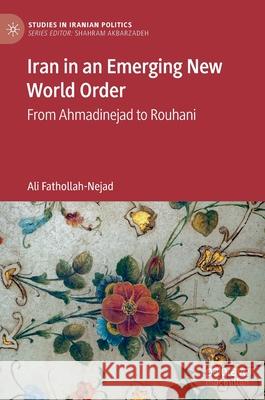Iran in an Emerging New World Order: From Ahmadinejad to Rouhani » książka
topmenu
Iran in an Emerging New World Order: From Ahmadinejad to Rouhani
ISBN-13: 9789811560736 / Angielski / Twarda / 2021 / 465 str.
Kategorie BISAC:
Wydawca:
Palgrave MacMillan
Seria wydawnicza:
Język:
Angielski
ISBN-13:
9789811560736
Rok wydania:
2021
Wydanie:
2021
Numer serii:
000830569
Ilość stron:
465
Waga:
0.73 kg
Wymiary:
21.01 x 14.81 x 2.69
Oprawa:
Twarda
Wolumenów:
01
Dodatkowe informacje:
Wydanie ilustrowane











